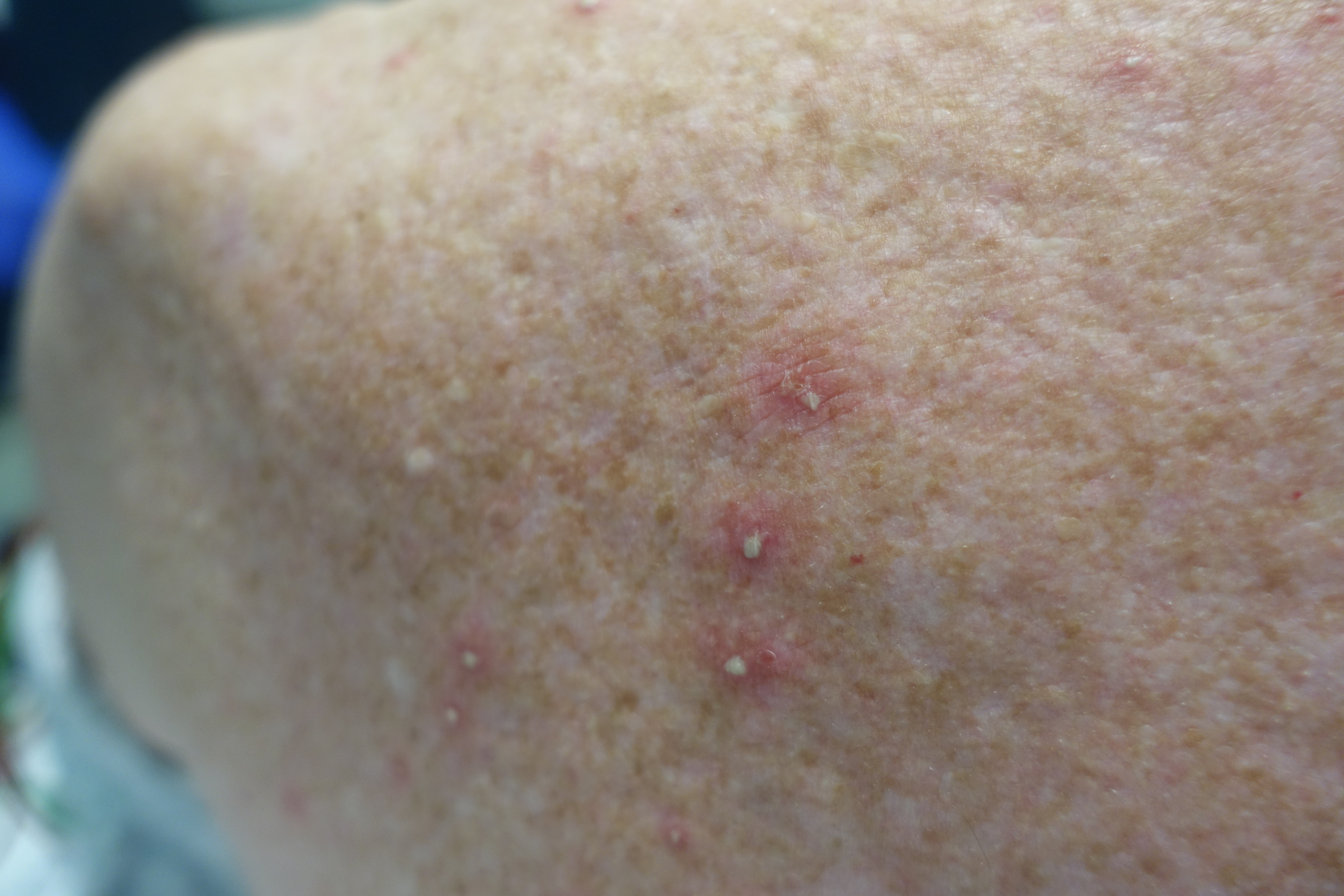Case Presentation: A 70 year old WM with a history of myasthenia gravis on prednisone for about 1 year prior to admission was admitted with fever, rash and pyuria. Two weeks prior to admission he was started on Azathioprine as his prednisone was being tapered. About 5 days PTA he developed a pustular rash, transient LLQ fullness and fevers up to 102 associated with rigors. He was also recently started on low dose atorvastatin that he stopped 3 days prior to admission believing that it was contributing to his symptoms. A ROS was otherwise negative. He presented to the ED and found to have a temperature of 102.9, borderline hypotension and an O2 sat of 93% on Room Air. His exam showed a diffuse erythematous pustular rash. WBC was normal, transaminases were mildly elevated and a urinalysis was positive for hematuria and pyuria with mild proteinuria. He was started on levofloxacin. Dermatology thought this rash was folliculitis (see Fig) that was confirmed with a biopsy that showed pustular folliculitis. He became hypotensive that was treated with IVF and steroids. Final biopsy results showed sterile folliculitis. His fevers, rash and LFT abnormalities improved with cessation of azathioprine.
Discussion: Azathioprine is a common immunosuppressant that is used in a variety of immunologic mediated conditions; however, azathioprine hypersensitivity Syndrome (AHS) is not well known by hospitalists, although it is reported to occur in up to 2% of patients within a few weeks of initiation. The most common cutaneous manifestation is neutrophilic dermatitis, other conditions such as folliculitis, as in our patient, erythema nodosum, small vessel vasculitis, and nonspecific dermatosis have also been reported. While cutaneous and constitutional sighs are most common, AHS can also be associated with liver, renal and shock. AHS can also be associated anemia, leukocytosis and inflammatory makers.
Conclusions: Hospitalists will commonly encounter patients on azathioprine. Since AHS can be life-a threatening response to Azathrioprine, hospitalist must have a high index of suspicion for AHS in the setting of a systemic illness associated with recent initiation of azathioprine. Immediate discontinuation of azathioprine is essential.

